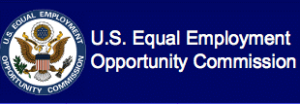 By Gerald L. Maatman, Jr., Jennifer A. Riley, Rebecca S. Bjork, and Gregory Tsonis
By Gerald L. Maatman, Jr., Jennifer A. Riley, Rebecca S. Bjork, and Gregory Tsonis
Duane Morris Takeaways: On November 4, 2022, the U.S. Equal Employment Opportunity Commission released a preliminary draft of its 2022-2026 Strategic Plan. According to its preliminary draft, the EEOC plans to focus its internal operations over the next four years to make changes that it hopes will improve its performance securing targeted injunctive relief and conducting systemic investigations, along with its use of technology to process charges and conciliate them. The four-year plan – which is distinct from the EEOC’s strategic enforcement plan, still to be released in the coming months – was published in the Federal Register and is open for comment until December 4, 2022. Even if employers do not submit comments, they would be well-advised to review the draft and final Plan once it is announced because it provides a window into the EEOC Commissioners’ thinking for how the agency will use its resources to redress and deter workplace discrimination.
Introduction
Every four years, the EEOC prepares a Strategic Plan that drives how it will improve its internal operations to better enforce federal anti-discrimination laws. The Plan for 2022-2026 that has now been published in the Federal Register is important because once it is finalized after the review and comment period expires, it will set forth specific goals along with performance metrics to measure how well those goals are being met. The key elements of the draft Plan and why they are important are critical data points for employers.
Operational Improvements And Performance Metrics Sought By The EEOC
The 2022-2026 Strategic Plan draft signals that when investigating private sector employers, the EEOC will focus its internal operations on four key areas. First, the EEOC will ensure that by FY 2025, “90% of EEOC conciliations and litigation resolutions contain targeted, equitable relief and that level is maintained through FY 2026.” (Draft Strategic Plan at 15.) The draft Plan explains the EEOC’s view that such a goal likely would improve compliance with the statutes enforced by the agency nationwide.
Second, between FY 2022 and 2026, the EEOC aims to continue to “favorably resolve at least 90% of enforcement lawsuits.” (Id. at 16.) On this point, the EEOC explains that because its systemic litigation program is resource intensive, this goal is important to enable the agency to use its resources in a wise and efficient manner. Employers who have faced systemic lawsuits are well-aware of the amount of litigation resources they can consume, both for the companies involved and the EEOC.
Third, “In each year through FY 2026, the EEOC will provide training to all field staff on identifying and investigating systemic discrimination, and at least 90% of investigators and trial attorneys will participate in systemic training each year.” (Id.) The draft Plan explains that the purpose of this goal is “expanding the EEOC’s capacity to conduct systemic investigations, resulting in a coordinated, strategic, and effective approach to systemic enforcement.” (Id.) This likely signals that the draft Strategic Enforcement Plan will continue to emphasize and prioritize the EEOC’s use of pattern or practice lawsuits to enforce the statutes over which Congress gave it authority.
Fourth, “the EEOC will make significant progress toward enhanced monitoring of conciliation agreements, leading to a more robust compliance program.” (Id. at 17.) The Commission’s focus here is to implement “streamlined and standardized procedures, improved tracking and internal reporting mechanisms, and related training for EEOC field staff” to ensure that conciliation agreements are reached and enforced. (Id.).
Finally, the EEOC continues to be aware that its charge intake process needs work. The draft Plan pledges to leverage technological advancements to “enhance its intake services to potential charging parties, respondents, and representatives.” (Id. at 19.)
Implications For Employers
The EEOC’s FY 2022-2026 draft Strategic Plan is a document that provides insight into the direction the agency will take to improve how it functions.
With a nod the old E.F. Hutton TV commercial, “when the EEOC speaks, employers should listen…”









 By: Gerald L. Maatman, Jr., Jennifer A. Riley, and Alex W. Karasik
By: Gerald L. Maatman, Jr., Jennifer A. Riley, and Alex W. Karasik